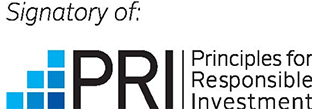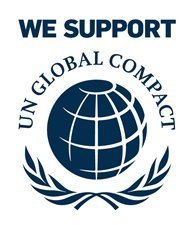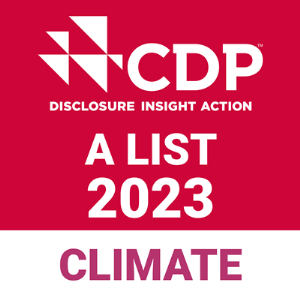- Home
- External Assessments and Initiatives
- External Assessments and Initiatives
External Assessments and Initiatives
PRI (Principles for Responsible Investment)
The Principles for Responsible Investment (PRI) refers to the six principles (see below for specific descriptions) as well as the international network of investors established to realize those principles. PRI is promoted by the United Nations Environment Programme ("UNEP") and the United Nations Global Compact ("UNGC").
PRI encourages companies to incorporate environmental, social and corporate governance ("ESG") issues into decisions on investments. By incorporating these perspectives into the investment decision-making processes, PRI aims for companies to enhance the long-term performance of their beneficiaries and further fulfill their fiduciary duties.
JPR’s asset management company, Tokyo Tatemono Realty Investment Management, Inc. (TRIM), which endorses the basic approach of the PRI, became a signatory organization in May 2019.
1. We will incorporate ESG issues into investment analysis and decision-making processes.
2. We will be active owners and incorporate ESG issues into our ownership policies and practices.
3. We will seek appropriate disclosure on ESG issues by the entities in which we invest.
4. We will promote acceptance and implementation of the Principles within the investment industry.
5. We will work together to enhance our effectiveness in implementing the Principles.
6. We will each report on our activities and progress towards implementing the Principles.

Task Force on Climate-related Financial Disclosures(TCFD)
TRIM announced its support for the recommendations of the Task Force on Climate-related Financial Disclosures (TCFD) in May 2021.
TCFD established by the Financial Stability Board (FSB) at the request of G20, to examine how climate-related information should be disclosed, and how should financial institutions respond. TCFD recommends companies to disclose their “governance,” “strategy,” “risk management,” and “indicators and targets” to climate change-related risked and opportunities.

United Nations Global Compact
The United Nations Global Compact (UNGC) is a global framework for companies and organizations to act as good members of society and achieve sustainable growth by demonstrating responsible and creative leadership. Companies and organizations that sign UNGC are required to continue their efforts to apply the Ten Principles related to human rights protection, the elimination of unfair labor practices, environmental initiatives, and anti-corruption under the commitment of their senior management who affirm those principles.
Tokyo Tatemono has signed the UNGC, and Tokyo Tatemono Group is registered as a participating company, while JPR’s asset management company, TRIM, also participates as a member of the group.

Science Based Targets Initiative (SBTi)
SBTi is an international initiative operated jointly by CDP, United Nations Global Compact (UNGC), World Resources Institute (WRI) and World Wide Fund for Nature (WWF).
JPR established greenhouse gas reduction targets by 2030 and 2050, and as those targets are deemed to be consistent with the level required by the Paris Agreement (aiming to hold the global average temperature increase to a level well below 2℃ above pre-industrial levels and pursue efforts to limit the temperature increase to 1.5℃ above pre-industrial levels), and based on scientific grounds, JPR acquired certification from SBTi in April 2023.

Principles for Financial Action for the 21st Century
The "Principles of Financial Behavior for the Formation of a Sustainable Society (the Principles of Financial Behavior in the 21st Century)" is established as an action guideline for financial institutions that want to fulfill the responsibilities and roles necessary for the formation of a sustainable society.
JPR’s asset management company, TRIM, which endorses the principles, became a signatory in February 2022.

GRESB Real Estate Assessment
GRESB is an annual benchmarking assessment to measure ESG (Environmental, Social and Governance) integration of real estate companies and funds, as well as the name of organization which runs the assessment. It was founded in 2009 by a group of major European pension funds who played leading roles in launching Principles for Responsible Investment (PRI). Of the survey subjects, GRESB Real Estate Assessment covers real estate companies and funds that are mainly engaged in managing existing properties.
In the 2023 GRESB Real Estate Assessment, JPR received a “5 Stars”, the highest mark, in GRESB Rating (five-level rating) for the fifth consecutive years. It also won a “Green Star” designation for the tenth consecutive years by achieving high performance both in “Management Component” that evaluates policies and organizational structure for ESG promotion, and “Performance Component” that assesses environmental performance and tenant engagement of properties owned.
In addition, JPR received the highest “A Level” for GRESB Public Disclosure (Evaluation of ESG Disclosure Level) for the sixth consecutive years.

CDP Climate Change Program Assessment
Established in 2000, CDP is a non-governmental organization (NGO) run by an English charity which manages a global environmental information disclosure system for the purpose of helping companies, governments, and other organizations manage their environmental impact. In 2023, over 24,000 organizations globally disclosed data through CDP, including over 23,000 companies—representing half of the world’s market capitalization—and over 1,100 governments.
This is the fourth time for JPR to participate in the program, and it was recognized in the 2023 evaluation for its leadership in transparency and performance in the field of climate change, receiving the highest score of “A” and becoming a climate change “A List” company for the first time.
